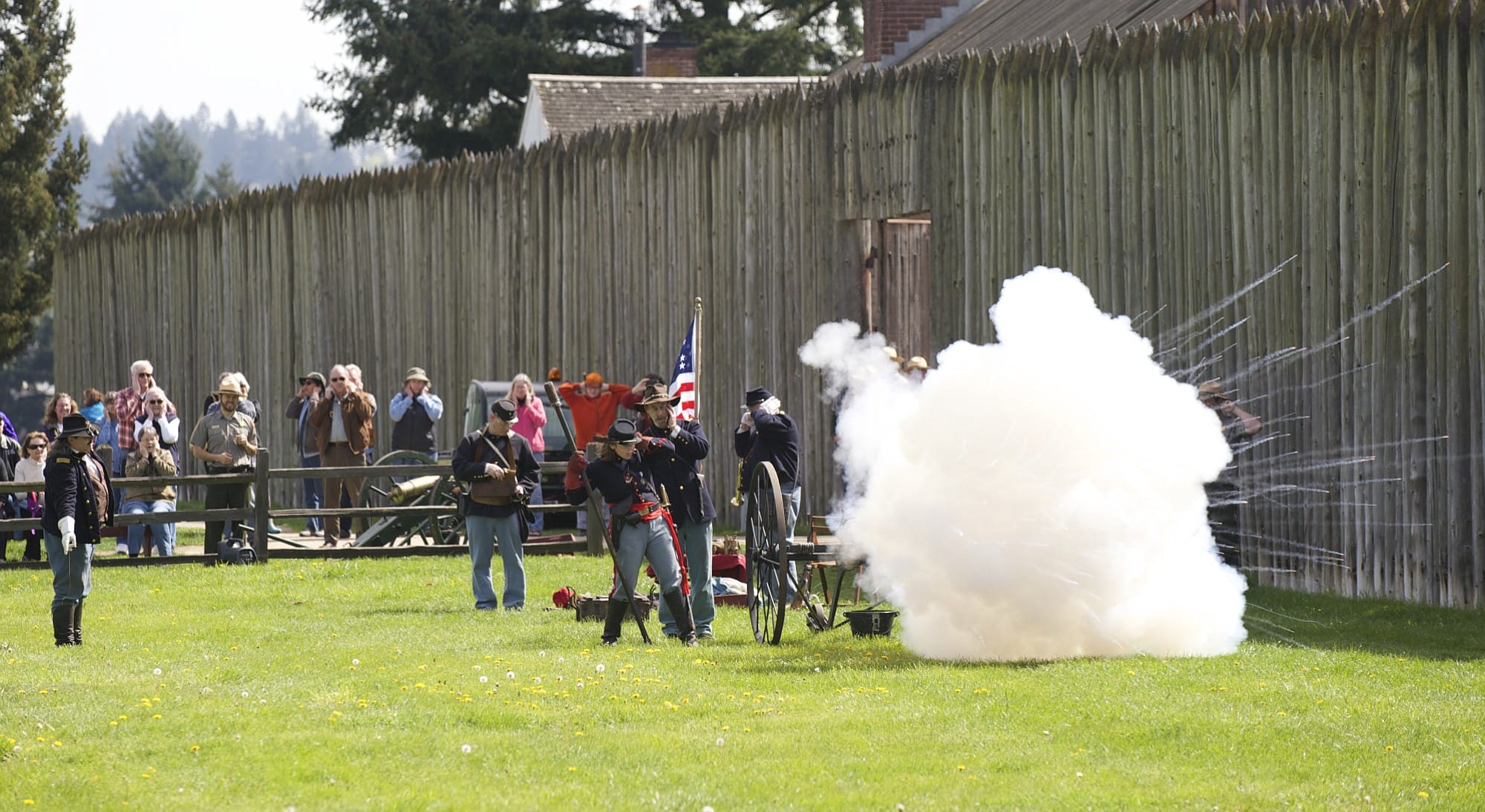Coming Sunday
At end of Civil War, former Fort Vancouver soldiers witnessed history — and helped make some of it.
On Page D1
Payton and Taylor Duncan, 6-year-old twins, covered their ears and winced as the replica Civil War-era artillery boomed by the gate of Fort Vancouver, marking the 150th anniversary of the surrender at Appomattox on Thursday.
The National Historic Site joined with dozens of other historic locations across the country at 12:15 p.m. for “Bells across the Land: A Nation Remembers Appomattox,” which included historic weapons demonstrations, re-enactors from the 1st Oregon Volunteer Cavalry and four minutes of bell ringing, one for each year of the Civil War.
“We’re just learning about the Civil War,” said the girls’ mother, Kathleen Duncan. “They’re a little young, but we’re learning about why we have certain rights, what we need for everybody to be free.”
On April 9, 1865, Union Gen. Ulysses S. Grant accepted the surrender of Gen. Robert E. Lee at Appomattox Court House, Va. The surrender didn’t mark the official end of the war — that occurred June 2, 1865 — but most Americans consider the surrender to be the symbolic end to the war over slavery and states’ rights.
After the artillery boom passed, the twin girls ran inside the fort to make some noise of their own, joining in the bell-ringing by giving a tug on its long rope. Bells rang across the country at the exact same time to mark the historic event.
“That was fun,” Taylor said after her turn, adding that she loves making loud noises.
Payton, on the other hand, said her favorite part of the demonstration was petting the cavalry re-enactors’ horses.
“I also lost a tooth,” Payton said excitedly. “I ate and it came out!”
About 150 people turned out for the sunny, mid-day commemoration.
Vancouver may seem a long way away from the eastern United States where, most of the Civil War’s battles took place, but Greg Shine, chief ranger at the fort, said much of what happened in the war echoed throughout our region.
“The pre-war Army was pretty small,” Shine said. “So many of the men that were officers here of any rank, they emerged as generals (in the war) just because of the need for people with Army training.”
Grant was among the many soldiers and generals in the Civil War who once served at the fort. And the lone Confederate officer accompanying Lee at the surrender, Lt. Col. Charles Marshall, was the uncle of Gen. George C. Marshall, commander at Vancouver Barracks from 1936 to 1938.
“I think people are interested in those connections, in what was going on in the East and what was going on here,” Shine said.
It actually took four days for news of Lee’s surrender to reach our area, despite the existence of telegraph technology. And oddly enough, it wasn’t front-page news, Shine said.
“Nowadays, something like that would be across the front page of all newspapers, but back then it wasn’t on the front page — it was on a page inside the paper,” Shine said.
It was a strange week for the region. After a brief sigh of relief that the war seemed to be coming to an end, news of the April 14, 1865, assassination of President Abraham Lincoln came to the area almost immediately thereafter, Shine said.
“It so quickly turned into this period of mourning with Lincoln’s assassination,” Shine said. “It’s really hard to judge the reaction over those few days.”



